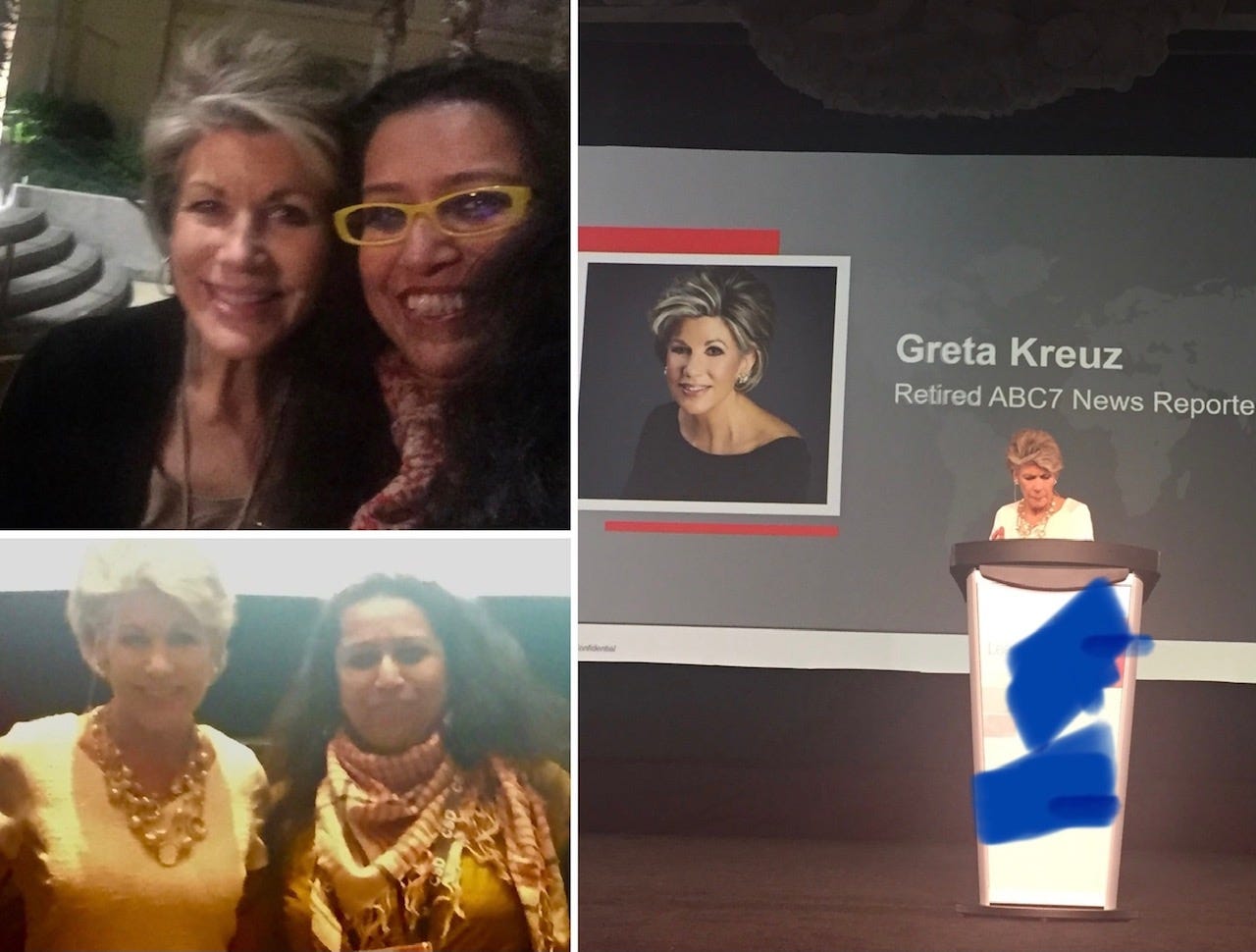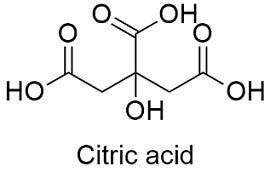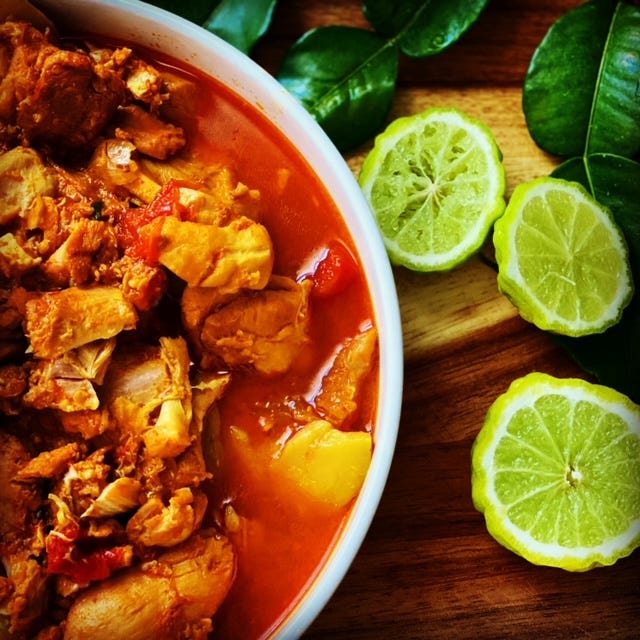When Life Happens, In A Pandemic
On cancer, clinical trials, chicken curry and citric acid
Hi, hi!
Well, I did tell you this newsletter would be slightly irregular, didn’t I? How have you been? Celebrating an almost-year of this life that was ‘unprecedented times’ and ‘not normal’? It’s QUITE precedented, isn’t it? This is QUITE the normal we now know, don’t we?
Okay, yes, I’m in a pissy mood and I’ll tell you why. Topic 1. See below.
The pandemic and clinical trials
According to Cancer Network, part of Oncology journal, the COVID-19 pandemic has, and rightfully so, changed healthcare priorities from cancer diagnostics to control, diagnose and treat COVID-19 patients, instead of continuing oncology diagnostics initiatives. Standard cancer screenings for say, breast or colorectal cancer dropped by over 85% through May 2020. New cancer diagnoses reduced by over 65% through April 2020. What does that mean? Long-term ramifications are that this will increase the late-stage cancer patient numbers, and eventually decrease survival for these patients. In laypeople’s terms, people will die. More people than it would have been say, a year ago. Just think of what we had achieved! In our lives BEFORE, we had a steady drop in cancer mortality over 25 years by over 25%. i.e. ~ 2.63M fewer deaths from cancer versus if the rates had remained at peak.
And now, as we close in on an AFTER (despite the new variants, the new 2-mask theory, the higher infectious variants), we do have an AFTER. We are being asked to go for our standard yearly check up, our colonoscopies, our mammograms, the usual. Why? Because, to put it simply, you can’t fix it, if you can’t detect it. And you can’t detect it, if the patients don’t get tested.
Why am I telling you this? Hear me out. This is a story of my friend, Greta. I didn’t know Greta for years and years like I do, most of my friends. I met her as part of work, and as part of an oncology summit I was hosting a couple of years ago. I needed my colleagues to hear the story of what a patient goes through to get diagnosed and then treated. And there was Greta. A fearless cable tv reporter, a go-getter, a fierce activist, a devout Catholic and a Stage IV lung cancer patient. We were the odd two who connected. I tried to keep it professional, but you know me—it’s hard when you look into this woman’s eyes and see her joy, her faith, and unwavering trust in science and not call her one of us.
I called her a ‘badass activist’ when like many strong women, she had a bout of the trusty imposter syndrome. She rolled her eyes, laughed and mentioned it to thousands of my colleagues next morning, “Madhu called me a badass, and I guess, that’s what I’ll be.” That was last year, around this time.
She scolded us scientists, “Please give these cancer drugs names I can pronounce. Not this osemertinib, this pembrolizumab or, or, or..!”
We had late night discussions over wine (she loved her wine), on religion and atheism, because while I went to Catholic school, I don’t believe in organized religion. For her, Catholicism was her life. During the pandemic, her treatment stopped working. A Stage IV cancer patient usually lives the life of an Aflac duck, every so often, when one treatment fails, they switch to another. And another. And another. Greta beat the odds. She, the non-smoker, the fit and fabulous patient had kept cancer and death at bay for eight years. I spoke with my medical friends and colleagues. I connected them. She got on a trial. And another. Then stopped. Then tried again. All through the pandemic. Greta had been with Stage IV for years. She could continue to be the badass she was.
In the last text I asked her how she was. It was January 29th, 2021.
Her reply, “Hanging tough!”—with a heart emoji.
Greta died a day later. My last text asking her how she was, remains unanswered. I will miss her energy and positivity so much.
I tell you this, because while we fight COVID-19, cancer is still here, still killing. Diagnostics is what keeps us alive. Don’t forget your colonoscopy, your mammo, your derm check. They save lives.
It’s been hard, the past few days, but I thought to share it with you, because you get what I’m saying.
Also, to my pharma friends who may be reading this, please name these drugs less complicated. It’s hard for patients to pronounce, especially for patients like Greta. And to all of you who are reading this, if you’re able to, and can, please consider a donation to Lungevity, a patient advocacy group that Greta was close to—a group that’s fighting relentlessly for folks like her and their families.
Here we are together, last year, in a dorky commercial conference. We had fun though, Greta, didn’t we?
Chicken Curry During Covid
Many of you ask me why I cook so much and so often, given my dog can eat Indian food only so much. That’s not true, if she could, she’d eat it all up and then hold her stomach in pain. But I digress. Why do I cook so much? I don’t know. It helps me think. It gets me through solving work issues, or when I am procrastinating about writing—I call that, procrasticooking. I am used to cooking a lot. I expected this time in my life to be filled with friends and family, and somehow that’s not what it is. Instead of being upset or sad about it, I make sure I still cook, and instead of folks coming home, I drop food off at theirs. My neighbors have gained a few pounds, and blame me. My friends always blame me. My dog doesn’t care, she’ll eat whatever I give her, at whatever spice level and she doesn’t know the meaning of blame.
Speaking of neighbors and writer friends, one of them stopped by with makrut limes from her tree this week. This is what the pandemic—with it’s unprecedented and not-normal times—has done. We have become neighborly. We actually have started to care when we don’t see our neighbor in his yard, or the other sprightly one watering her plants, or the grumpy one sleepily throwing out her trash right before the garbage truck shows up (yes, I’m talking about me).
Makrut limes are called ‘gondho leboo’ in Bengali. Loosely translates to fragrant lime. The leaves have a fresh fragrance and the limes have less citric acid content than lemons but they perk up any dish—especially protein. You can use them with lentils to break down the protein, or in chicken (if it’s a coconut milk curry which is heavier than a water-based turmeric-cumin curry).
Citric acid looks like this:
Any chemical structure that’s completed with a —COOH is an acid that breaks down into salt, water when it oxidizes proteins (in meat, for example). Chicken, like other meats (including us) is made of these amino acids:
The —COOH then attacks these amino acids, breaking them down, and releasing energy. That energy is what keeps us alive, and active. And makrut limes, makes a heavy chicken dish that much fresher, and sparklier. I made chicken curry like Ma used to every weekend in Chittaranjan Park. I added makrut lime juice to it, to eat with rice. It was a good weekend. The neighbors agreed.
#GirlGab Musings
It’s been 49 weeks since I hugged a human. I say this because it’s true. I say this because a lot of us have reached a fuckit part of the pandemic. I say this because I hear many of us saying we are fatigued. I say this because while the vaccine is here, the variants are even more infectious. I say this because now they’re asking us to double-mask and make sure the fit is good. I still will continue to talk about not hugging, because while I am fatigued, while I am tired, I still want to make sure we ALL get out of this relatively unscathed, and alive. Will we succeed? Who knows? But I’ll keep trying and do my part. The latest curious news is the numbers tumbling in India and conjectures on why it has. Herd immunity? Heat? Humidity? Who knows but the numbers are lower. May we all reach that stage and soon.
For #girlgab—a Friday zoom dinner I’ve dialed into for 48 weeks to kvetch and kwell with my friends, I continue to wear saris, even when it’s a pain and I’d rather be in PJs. Admiral William H. McRaven’s 2014 commencement speech about making your bed as your first objective when you wake up is one that guides me daily. Make your bed as the first task. You will be able to then change the world if you take that first step. While I don’t think I’m changing the world, but wearing a sari in this pandemic is my first step.

This too, shall pass. Stay well, my peeps.
Hugs,
M




